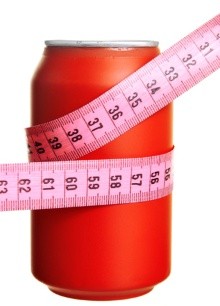Obesity — it’s a hot topic. By now, the word has gotten out, New York City is on the move in trying to battle obesity by banning the sale of sugar-containing beverages that are greater than 16 ounces. New York was the first city that required restaurants and food establishments to post calorie and fat information on all foods sold. Now, they are attempting what they hope will be another stride in fighting obesity, stirring up controversy along the way. So what do we know about obesity?

- 2 out of 3 adults in the United States are either overweight or obese.
- Childhood obesity has been on the rise over the past 20 years.
- Now 1 out of 3 children are considered either overweight or obese.
- Diet and exercise are key to preventing weight gain and obesity-related conditions.
- Obesity can cause other related diseases such as Type II Diabetes, Cardiovascular disease, fatty liver, bone disease, and the list goes on and on.
- The annual cost of treating obesity related issues is ~$190 billion dollars per year.
The ban on sugar containing beverages greater than 16 ounces is based on theory, as there currently is no research evidence showing that bans on these types of foods/beverages will actually curb the public’s behavior, and ultimately lead to weight loss and/or decrease in obesity rates. It is important to note that the ban would not just be on regular sodas, but on ANY beverage that is sweetened with sugar such as energy drinks, punches, pre-sweetened iced teas, etc. Here's a a quick break down of the sugar content in soda:
- A 16 ounce regular soda has on average ~17 teaspoons worth of sugar which = 17 sugar packets (~200 calories)
- A 32 ounce regular soda has on average ~34 teaspoons worth of sugar which = 34 sugar packets (~400 calories)
Will it make a difference? It is yet to been seen, but I for one am anxious to see what is about to unfold, however the vote goes! While there is no evidence banning foods/beverages results in weight loss, we do know that EDUCATION is a key to changing behaviors. Educating ourselves and families on nutrition and physical activity so that we can prevent obesity and obesity related diseases. No matter where you stand, for or against the ban, one cannot argue that this has brought awareness to the obesity epidemic. This is a great time for you and your family to reflect on your choices. It is a great time to discuss what are healthy food and beverage choices. It is a great time to get involved in physical activity in order to help prevent obesity and obesity related conditions. Feel like you need a little extra help? A registered dietitian can help guide you and your family in the right direction. You can also check out kidseatright.org for some really cool recipes, shopping tips and easy-to-understand nutrition information, as well as, myplate.gov which may also be helpful to you and your family.
Author
Kristi King, clinical dietitian